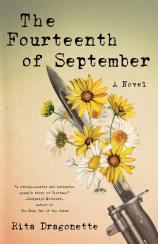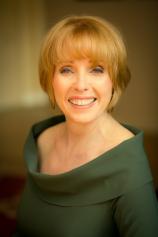Author Talk: September 14, 2020
Perfect for fans of Kate Quinn and Heather Morris, Rita Dragonette’s debut novel, THE FOURTEENTH OF SEPTEMBER, is based upon her personal experience on campus during the Vietnam War and is told through the rare perspective of a young woman who traces her path to self-discovery. In this interview, Dragonette talks about how what she lived through in 1969-1970 parallels the activism that is occurring right now in the United States; why she calls her book a coming-of-conscience novel; what she hopes readers will take away from the story; and her future writing projects.
Question: So much of your book is about activism. How do you think what you lived through in 1969-1970 relates to what we see happening right now in the United States?
Rita Dragonette: What keeps occurring to me when I see, for example, the responses to the protests after the last election and, in particular, the “Black Lives Matter” movement is the similarity. If you look at the world today, you see how we’re questioning our top leadership and governing bodies. Like during the Vietnam War, the situation in the country inspires frustration, rage and fear. You protest when you don’t have power. In the time frame of my story, the whole atmosphere --- aside from genuine fear --- was of being powerless. Today, the presidential vote itself was a protest for certain segments of the population who felt they weren’t being heard. Having no power always feels like something is not fair. And when you can’t impact what you feel isn’t fair, you protest.
Different tools are available at different times --- voting, marching, property destruction, social media campaigns. The vehicles change, but the impulse is the same. The proper channels have let us down, so we turn to emotion --- it’s rage. When that fear and rage are channeled into the political process, it can be positive. When the government appears entrenched in a point of view, it seems hopeless. Our answer was to hit the streets.
Q: You call this a coming-of-conscience novel, which is a term you created. Can you explain what this means?
RD: I think we’re all familiar with the coming-of-age novel, where a character grows into adulthood. Judy is only 19, and she evolves from a wide-eyed, naive new recruit, into a member of the counterculture who accepts everything and goes with the crowd, and finally into what we’d probably call today a critical thinker with a mind of her own. Furthermore, all her issues have to do with character. She works really hard to figure out who she is if she stays in the army and who she would be if she leaves. She weighs the stakes, the impact and the consequences for herself, but also for her family and her country. Ultimately, she has to decide who she is and, in many ways, who she will be ever after, before she can decide what she will do. That’s pretty heavy for a teenager. I think “coming-of-conscience” characterizes it much more specifically than “coming-of-age.”
Q: What do you hope readers take away from THE FOURTEENTH OF SEPTEMBER?
RD: My belief is that we learn our history through facts and nonfiction, but we understand it through narrative. I would like every reader to experience the six months depicted in the novel in Judy’s shoes and wonder what they would have done in the same circumstances. And, if possible, share it with family members and start a dialogue about how those times impacted their own families --- it’s only been 50 years. People have stories to tell and probably have been reluctant to tell those stories. Few families have been unaffected.
Q: You’re currently working on a couple of books. Can you tell us a bit about the projects you’re writing and what we can expect next from you?
RD: When I wrote my debut novel, I was pretty hard on myself in terms of refusing to work on anything except that book until it was done. Now, I’m much more organic about how I approach projects. I’m simultaneously working on two books about the generation that my character Judy, from THE FOURTEENTH OF SEPTEMBER, has grown into. One is a homage to THE SUN ALSO RISES about older expats who have come to San Miguel de Allende with their last dream. The other is a memoir in essays about inflection points that resonate across a life. I’m also doing preliminary research on a novel set in World War II about two women: an American Army nurse and a German who was part of the Lebensborn program. I continue to be fascinated by the subject of war through the point of view of women.



